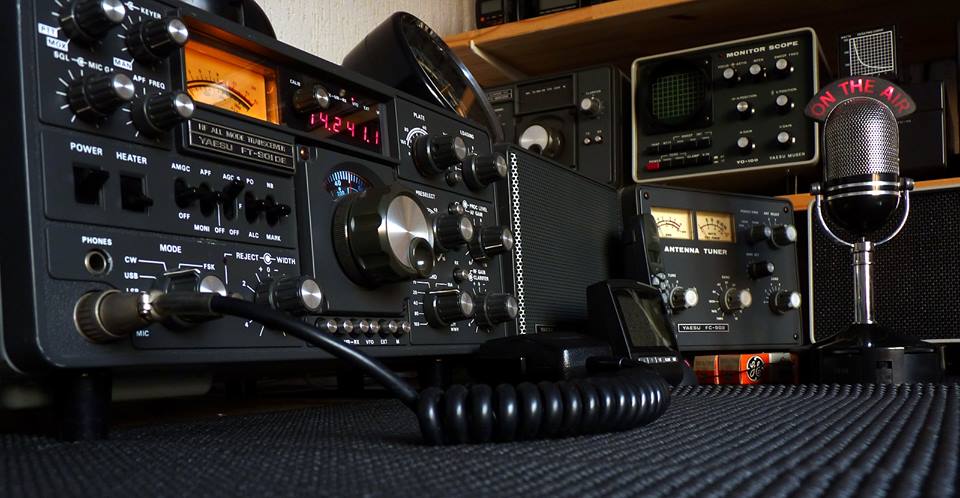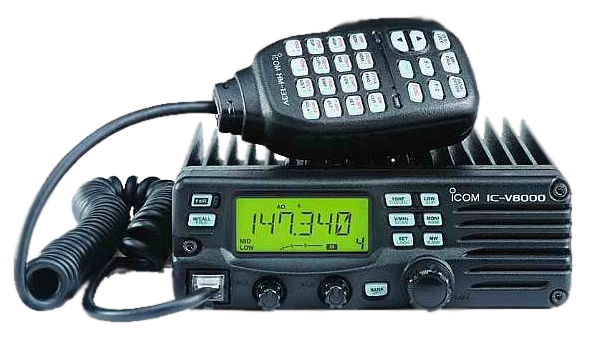
Amateur Radio is a hobby for a community of people who are communicating with each other using a radio transmitter, and a radio receiver. Actually, this group of people is called Radio Hams or just Hams! I cannot say how this term is being created, but Amateur Radio operators are identified as such throughout the world. Hams are not only making use just to chat among them using voice, or radio telephony, besides there are a number of techniques they use, for example, amateur television, Morse code, digital communication, etc, etc. There are a number of software programs dedicated to licensed radio hams so that they can communicate with other hams around the world, e.g. Echo link. Ham Radio is a very dedicated hobby and among radio Hams, they interchange and discuss technical matters, help each other, self-learning matters related to electronics, etc. Radio hams all over the world have served in many disaster situations. Ships in distress have been handled by radio amateurs, therefore I am very proud to mention we have a great hobby. Even in Sri Lanka, they have served in many disasters.
I remember when Batticaloa was flooded the only communication was via ham radio. Not forgetting the last Tsunami the only communication in that situation was possible by Radio communication network established with the assistance of a group of dedicated radio hams establishing contact between down south and Hon. Prime Minister’s Office in Colombo. A group of amateur radio operators have gone to the disaster areas carrying their equipments, batteries, antennas and established communications to Colombo and made a great job, rendering assistance to government establishments, especially Social Services Ministry & P.M.’s Office, when telecommunication networks either disrupted or congested for a couple of days soon after the Tsunami.

Ham Radio hobby is internationally recognized, and all radio hams are addressed by a call sign. It is identified by one or more letters and numbers with prefixes assigned to the respective Country where the amateur radio operator is domiciled. For example a Ham in Sri Lanka the call sign always start with, 4S. In Great Britain it is G, In Denmark OZ, followed by numbers or letters according to the category of the license, or the countries division. So this permits an operator to recognize the Country of Origin of the ham in the other end. The amateur radio or ham radio is very great medium of radio communication technique that brings communities in the World together, make friends, share knowledge and techniques and lend a hand in any emergency or disaster situation if all other means of communications fail, because radio communication equipment can be operated with low voltage portable power packs(batteries) using mobile antennas.
Nowadays some people will react, would be critical of, why one should go to hassle of using amateur radio techniques when in the modern day when cellular phones are the fashion to communicate worldwide at any given time. Yes, one must not forget the fact that – all public communication systems can go dead, disconnected in a disaster or in an emergency situation, while mobile amateur radio transceivers with back up power supplies can last until such time, normal communications are restores.
Further, as it did happen so, all public communications network failed or got congested with unlimited traffic in 2004 Tsunami, radio communication network became so useful in that moment of national disaster. Also, it is great fun to radiate a signal from your antenna to the other antenna somewhere in the other end of the World remote station. Today almost all Astronauts carry a ham ticket, ham radio equipment and make themselves available to communicate between International Space Station and Earth with Hams. ISS Amateur radio wing even lines up school children to engage in radio communications with ISS in promoting friendship and knowledge in radio communication techniques from far and wide in the Space and Earth.
We hams have our own terminology, or short phrases, using a code called Q code, for easy operation, e.g. QTH is for where you are living. QRM is for disturbances like noise, etc. Internationally the frequency bands are dedicated to radio hams, from Very Low frequency to super-high-frequency bands. They are not permitted to deviate from the respective band segments allocated to them. So I hope this is all about Amateur Radio in a nutshell.
The Amateur Radio connects electronics, communications, and people together. Largely the Ham Radio is a popular hobby but contributions for multiple fields such as engineering, science, industries also social services. Ham radio license is needed to operate an individual radio station and it needs to accumulate some special requirements. Operators use Amateur Radio to talk across far destinations, around the world or to space without manipulating the internet or cellular network connections. Once completed the requirements for Ham radio license, it is allowed you to set up a radio station in the field.
